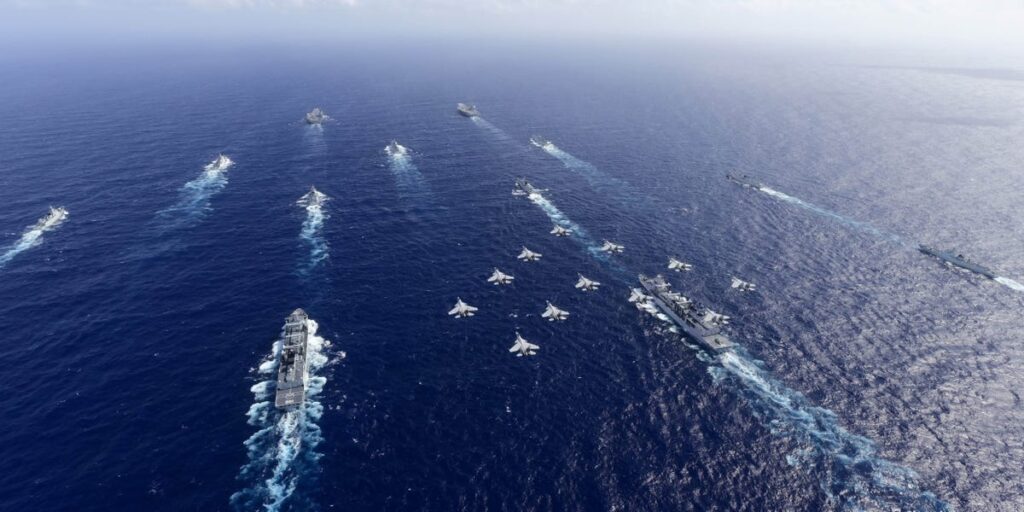In a world already shaken by economic shocks — from the pandemic to sweeping tariffs — there’s one scenario that would dwarf them all: a Chinese invasion of Taiwan.
This is the hypothetical Ben Thompson floats in the latest edition of Stratechery, a newsletter widely followed by tech industry insiders.
An invasion wouldn’t just be a military conflict; it would be a systemic rupture in the global economic order that underpins everything from iPhones to inflation forecasts.
Thompson reckons China would prevail militarily. The larger story isn’t about who controls Taipei — it’s about what happens when the world’s most essential supply chains are shattered. Taiwan isn’t just any island; it’s home to TSMC, the company responsible for manufacturing the most advanced semiconductors on Earth. Take that away, and the modern tech ecosystem buckles — taking with it the digital infrastructure of daily life.
This is so important that there’s even a theory quietly discussed among global security experts that Taiwan could threaten to destroy its giant chip fabs as a way to deter China from invading.
Thompson argues that regardless of who wins militarily, the economic result is the same: China, the global factory, is effectively cut off. Taiwan’s chip output vanishes. Global trade grinds lower. Inflation surges. Markets tank.
Recall the 2020 COVID supply chain chaos or last week’s market turmoil from Trump’s tariff barrage — now magnify that impact exponentially.
“A war over Taiwan,” Thompson wrote on Monday, “would put all of these to shame.”
Is war the only answer to resetting the system?
Of course, it’s not clear if, or when, China would invade Taiwan. And even if it did invade, it would face challenges, according to defense writer Michael Peck.
But what’s particularly striking is Thompson’s framing: War might not just break the system — it might be the only way to reset it. The post-World War II economic order, rebooted by Bretton Woods and supercharged by China’s entry into global markets, is showing its age. The US traded industrial capability for cheap goods and ballooning deficits. American manufacturing jobs vanished, supply chains lengthened, and the economic resilience of the US heartland hollowed out. (These are the areas where JD Vance’s anti-globalization message really resonates, by the way.)
Trump’s tariffs — clumsy, politically divisive, and economically painful — might still be preferable to waiting for a war to force change. As Thompson notes, the current system can’t be fixed without a stomach for hard trade-offs, and America seems unwilling to take the hit until it’s forced to.
So we return to the Taiwan question — if China invades, or how close we come. The prudent path, Thompson suggests, may be to pull China deeper into economic interdependence, betting that shared prosperity can delay or prevent disaster. But if that gamble fails, the cost won’t just be measured in GDP — it’ll be in decades of lost stability, broken industries, and a new global order forged not in peace, but in fire.



